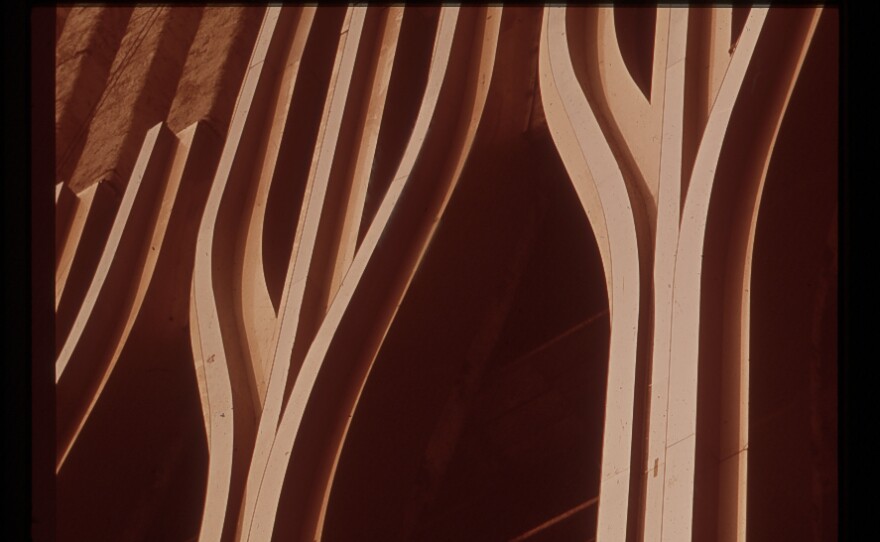Most of us remember where we were when the twin towers came down in the 9-11 terrorist attacks. The buildings, once a towering representation of New York's financial district, became a massive pile of concrete and twisted metal in less than two hours.
The design of the World Trade Center buildings came from Seattle-born architect Minoru Yamasaki. His firm, Yamasaki & Associates, was based in Troy, Michigan and operated from 1955 to 2010.
Yamasaki died in 1986 of stomach cancer at the age of 73. The firm continued, but fell into serious financial trouble and closed its doors in 2010.
The firm owed back taxes to Oakland County, so the county planned to seize the materials in Yamasaki's offices and auction the items off. The rest was going to be shredded.
It was all going to happen fast, so the state's official archivist, Mark Harvey, swooped in to gather as much material as he could.
Rick Pluta shares the fascinating story of how Michigan came to own the designs for the original World Trade Center.
Part of it included clandestine meetings, since the firm's CEO was on the lam because of tax evasion charges:
“We did have a phone number for him. He was concerned about preserving the records, so we actually met. He set it up that we’d meet at the parking lot of the Starbucks down the street from the building the next morning,” says Harvey. “So I arrived at 7:30. A black Lexus pulled in next to me, and the window rolled down, and he waved me in. So I got out of my car and walked over and sat in the seat.”
With that meeting and others, the state eventually came to own the plans, photos, and other items related to the design and building of the World Trade Center.
You can scroll through some of the items in the photos above.
State archivist Mark Harvey says, "the collection is open for research, and the public can visit the archives six days a week."
Harvey says information on visiting the archives can be found on the Michigan History Center's website.















